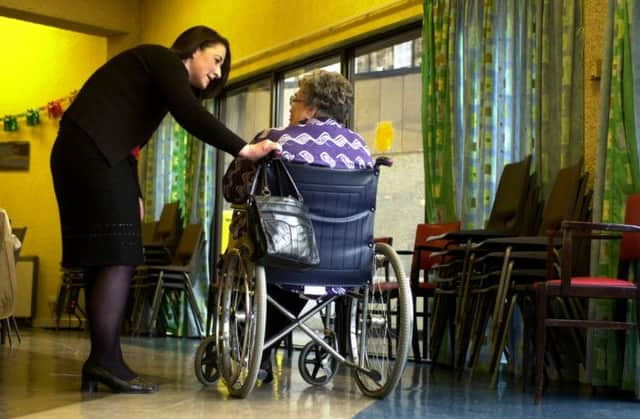Learning is a lifelong experience for all


EVERYONE judges people all the time. We might not act on it, but we all do it. People in the street, people on television, people we work with. This is a totally natural human reaction, but when it comes to work, it is one we must learn to control.
A few months ago I was appointed as the joint officer of South Lanarkshire health and social care partnership. This means I lead and will be accountable for adult health and care across the whole of South Lanarkshire. I’m a social worker, but will now also be managing health services and will be responsible for integrating all of adult health and care.
Advertisement
Hide AdAdvertisement
Hide AdBecause I haven’t worked in the health service up until now, I, like many others from health and social care alike have ideas of what other professionals do. An idea based mainly on a perception from a particular viewpoint. We must be careful of that. Particularly in social work, which should be more confident profession. We can see integration as take over and self-directed support as potentially cost cutting and creating redundancies.
We must move beyond that and see all the recent policy changes, particularly integration and self-directed support as opportunities. Opportunities to help colleagues understand the value of our profession and opportunities to learn from others.
And, there are many others we can learn from. We can learn from the innovation and creativity of people who need our support; the business acumen of the private sector providers; the specialist knowledge and understanding of the voluntary sector. When it comes to what we can learn from the NHS, one thing in particular that has struck me – their relationship with research.
The health service is constantly working out new and better ways to treat people. Each medical school is linked to a number of teaching hospitals. Medical students and nursing students alike are exposed to practice as they learn. And when they graduate, it keeps going. There are exams to pass in order to specialise as for example a GP; exams to pass to be a consultant; and a constant focus on keeping up-to-date with research and contributing to the research agenda.
Social work can learn a lot from that. While we aspire to evidence based practice, in medicine, it’s part of how they operate. Of all the culture shifts we talk about in integrating services and supporting people to design their own packages of care, a shift towards a culture of seeing research as an essential part of practice is probably the most important if we are to truly provide excellent support to the people who need us.
If I had heart disease, I want the best cardiac surgeon, trained in the latest methods to ensure I have the best chance of a healthy life after an operation.
We’re not used to thinking like that in social work, and while the skills of a social worker are different to that of, for example a surgeon, the premise is the same: we need our practice to be informed by research.
If I have just come out of prison, I need someone to help me get a house; find a job; re-connect with my family; contribute to and be part of my community; keep off of drugs; help me sort out my benefits. I also need someone to support me, believe in me and give me hope. I need someone that knows how to connect me with all the services I need, but who also understands me and can support me, until I can manage on my own. That’s the job of social work . It’s totally different to the job of a specialist clinician in the Health Service, but like the specialist clinician, the success of the person coming out of prison relies on the social worker knowing what will work for them.
Advertisement
Hide AdAdvertisement
Hide AdI spoke to a social work professor recently who said that applications for doctorates in the social work department come from students from other departments and social work students seem less interested in research. That’s something we need to tackle.
We all have a shared goal of providing the best service to the people who need our support, and we all have a duty to make sure we are doing all we can to achieve it.
We each have our unique specialisms and we need to learn from each other without diluting what we bring to the mix.
• Harry Stevenson is the president of Social Work Scotland www.socialworkscotland.org @socworkscot
SEE ALSO